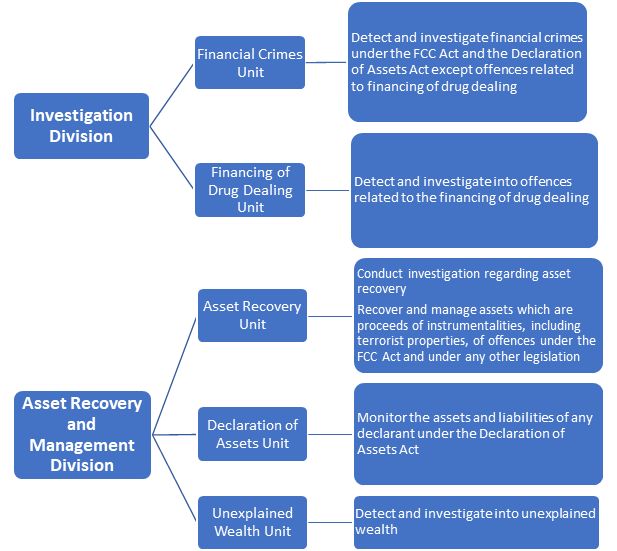International trade transactions play a crucial role in the global economy, facilitating the exchange of goods and services across borders. Nevertheless, the international trade system is fraught with risks and vulnerabilities that can be used to commit financial crimes. The Financial Action Task Force, an international inter-governmental body that develops policies to combat money laundering and the terrorist financing, defines trade-based money laundering (TBML) as the "process of disguising the proceeds of crime and moving value through the use of trade transactions in an attempt to legitimise their illicit origins." TBML is achieved through various means including over-invoicing, under-invoicing and misrepresentation of goods shipped among other more complex fraudulent practices.
As a net importing country with a trade to GDP ratio of 98% in 2021, Mauritius also relies highly on trade transactions. The new Financial Crimes Commission (FCC) Act, which received Presidential assent in December 2023, is a key piece of legislation that will enhance efforts to prevent trade-based financial crimes. The FCC Act establishes a new independent body corporate to combat financial crimes both domestically and internationally for cases linked to Mauritius. The Prevention of Corruption Act, the Asset Recovery Act, the Good Governance and Integrity Reporting Act and Part II of the Financial Intelligence and Anti-Money Laundering Act will be repealed and replaced by this new overarching legal framework. This implies that the FCC will take over the functions of the Independent Commission Against Corruption, the Asset Recovery Investigation Division and the Integrity Reporting Services Agency. The FCC will also be the depository for declarations made under the Declaration of Assets Act1. As of March 2023, the FCC Act is pending proclamation by Parliament.
According to the Act, the FCC, also referred to as "the Commission", is responsible for:
- receiving and considering allegations or complaints of financial crimes and referring these for investigations;
- detecting and investigating into financial crimes and other offences through various specialised divisions (see Figure 1);
- educating the public to prevent financial crimes and any other offence under the FCC Act and the Declaration of Assets Act through its Education and Prevention Division;
- prosecuting financial crimes and any other offence under the FCC Act and the Declaration of Assets Act; and
- taking any other actions necessary to address financial crimes and other offences under the FCC Act and the Declaration of Assets Act.
Figure 1: Specialised Divisions of the Financial Crimes Commission

Source: Author's elaboration based on the FCC Act
The FCC Act requires the Commission to develop a strategic vision and national policy to prevent financial crimes. It also promotes collaboration with local, regional and international bodies involved in combating financial crimes, such as banks, the Financial Services Commission, the Egmont Group of Financial Intelligence Units, the Asset Recovery Inter-Agency Networks of Southern Africa, etc., particularly for:
- identifying and tracking individuals suspected of involvement in financial crimes;
- identifying and tracking the movement of proceeds and instrumentalities;
- exchanging personnel and expertise;
- investigating financial crimes with international implications;
- conducting joint investigations with national and international authorities.
According to the FCC Act, the Commission must develop and implement a system to monitor global financial crimes to detect suspicious transactions and persons involved. In addition, the Commission must maintain data, statistics, records and reports on organisations, assets, proceeds, instrumentalities, properties, documents and other items or assets involved in financial crimes. The Commission is also mandated to investigate possibilities of financial crime within a public institution and assess whether the practices and procedures of public bodies aid in the detection and prevention of financial crimes. Regarding public procurement, the Commission has the power to oversee the execution of contracts awarded by public authorities. Moreover, the Commission may exercise oversight and supervision of the integrity systems within public institutions and issue guidelines if necessary.
The Commission is formed by a Director-General, who will act as Chairperson, and four Commissioners. The Commissioners are appointed on a part-time basis by the President of Mauritius, upon advice of the Prime Minister, following consultation with the Leader of the Opposition. The Commissioners should demonstrate expertise in law, banking, accountancy, finance, financial services or fraud detection and serve under the terms set by the Prime Minister. Commissioners are appointed for a three-year term and are eligible for reappointment. The President, on advice of the Prime Minister, also has the authority to terminate a Commissioner's appointment at any time if the latter:
- is found guilty of misconduct, default or breach of trust while carrying out his/her functions;
- has committed an offence of a nature that makes it appropriate for their appointment to be terminated.
- is mentally or physically not fit to discharge of duties as Commissioner.
The FCC Act describes in detail the different acts that would constitute corruption, money laundering offences, fraud, financing drug dealing offences and specifies the penalties applied in each case. This information is summarised in the table below.
| Offence | Penalty |
| Corruption | |
| Bribery by public official | Fine not exceeding 20 million rupees and to penal servitude for a term not exceeding 10 years |
| Bribery of public official | |
| Taking gratification to screen offender from punishment | |
| Public official using his office for gratification | |
| Bribery of, or by, public official to influence the decision of public body | |
| Influencing public official | |
| Traffic d'influence | |
| Public official taking gratification | |
| Bribery for procuring contracts | |
| Bribery for procuring withdrawal of tenders | |
| Conflict of interests | |
| Treating of public official | |
| Receiving gift for corrupt purpose | |
| Corruption in private entities | |
| Corruption to provoke serious offence | |
| Bribery by, or of, foreign public official | |
| Corruption in relation to sporting events | |
| Money Laundering | |
| Money laundering | Fine not exceeding 20 million rupees and to penal servitude for a term not exceeding 10 years |
| Limitations of payment in cash | |
| Fraud | |
| Fraud by false representation | Fine not exceeding 20 million rupees and to penal servitude for a term not exceeding 10 years |
| Fraud by failing to disclose information | |
| Making or supplying articles for use in fraud offence | |
| Failing to pay for goods and services | |
| Fraud by abuse of position | |
| Electronic fraud | |
| Financing Drug Dealing | |
| Financing of drug dealing | Fine not exceeding 20 million rupees and to penal servitude for a term not exceeding 10 years |
| Other Offences | |
| Making or supplying articles for use in the course of or in connection with an offence | Fine not exceeding 5 million rupees and to imprisonment for a term not exceeding 5 years |
| Possession of articles use in the course of or in connection with an offence | Fine not exceeding 5 million rupees and to imprisonment for a term not exceeding 5 years |
| Conspiracy | Fine not exceeding 20 million rupees and to penal servitude for a term not exceeding 10 years |
| Aiding, abetting or counselling | Fine not exceeding 20 million rupees and to penal servitude for a term not exceeding 10 years |
| Attempt to commit an offence | Fine not exceeding 5 million rupees and to imprisonment for a term not exceeding 5 years |
| Penalty for breach of guidelines | Penalty representing 10,000 rupees per month or part of the month, until such time as the breach is remedied, provided that the total penalty payable shall not exceed one million rupees |
| Obligations and Liability of Legal Persons | |
| Obligations of legal persons | Fine not exceeding 20 million rupees |
| Liability of legal persons | |
Source: Author's elaboration based on the FCC Act
Companies engaged in international trade must comply with laws and regulations on financial crimes, particularly regarding money laundering, to avoid the reputational risks and penalties involved with non-compliance. It is important for companies trading from or with Mauritius to get a good understanding of the FCC Act and to establish the necessary framework to ensure compliance with the legislation and promote ethical business practices.
International Economics Consulting Ltd (IEC) is an independent consultancy firm working with national and international development partners, governments, and the private sector to create value and promote sustainable growth and development. With extensive experience in trade policy, research, and negotiations, IEC can support governments and businesses deal with unfair trade practices and unforeseen consequences of free trade by providing analytical expertise and support.
The content of this article is intended to provide a general guide to the subject matter. Specialist advice should be sought about specific circumstances.
References
The Financial Crimes Commission Act, Available at: https://mauritiusassembly.govmu.org/mauritiusassembly/wp-content/uploads/2023/12/act2023.pdf
WITS (2021), Mauritius Trade Indicators, Available at: https://wits.worldbank.org/CountryProfile/en/Country/MUS/Year/LTST/
FATF (2006), Trade Based Money Laundering, Available at: https://www.fatf-gafi.org/content/dam/fatf-gafi/reports/Trade%20Based%20Money%20Laundering.pdf.coredownload.pdf
Footnote
1. The Declaration of Assets Act, which entered into force in June 2019, requires public sector officials including members of the National Assembly, councillors of municipal councils, mayors, chairpersons and chief executives of state-owned enterprises and statutory bodies among others, to declare their assets and liabilities (including those of the spouse and minor children) with the Independent Commission Against Corruption (ICAC).
The content of this article is intended to provide a general guide to the subject matter. Specialist advice should be sought about your specific circumstances.


